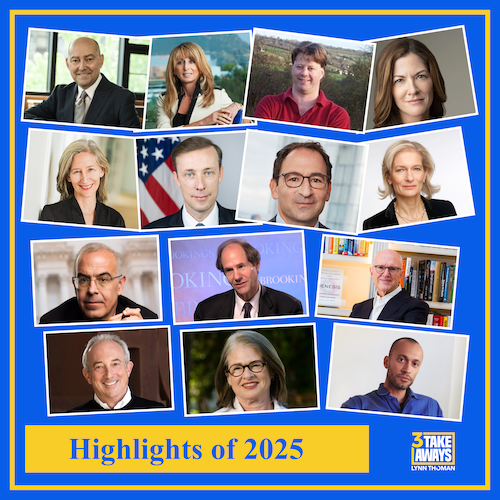
Highlights of 2025
Some insights change how you see the world.
From the White House to the frontiers of AI drug discovery, we’ve gathered the most powerful moments from a year of extraordinary conversations.
This 2025 highlights episode brings you the thinkers and leaders who challenged assumptions, revealed hidden patterns, and reframed the biggest questions of our time.

Dr. David Agus on The Hopeful Science of a Longer, Healthier Life
Dr. David Agus, Professor of Medicine and Engineering at the University of Southern California and Founding CEO of the Ellison Medical Institute, treats presidents, CEOs and cultural icons and has spent decades studying one question: What determines how long and well we live?
His answer is hopeful: Only 4% is genetic. The other 96% is under your control.
In this episode, he reveals why elephants rarely get cancer, why giraffes never get heart disease, and what inflammation does to nearly every organ in your body.
He also shares the simple, proven habits that matter more than DNA, and destroys the myths quietly harming millions.
Science-backed. Actionable. Hopeful.
He is the author of multiple New York Times bestsellers, including The Book of Animal Secrets, The Lucky Years and The End of Illness.

Top Takeaways of 2024
The episode you’ve been waiting for is here: our Top Takeaways of 2024. Listen to some of the world’s smartest, most influential thinkers, business leaders, innovators, technologists, and other newsmakers — including Eric Schmidt, Mellody Hobson, Atul Gawande, Fareed Zakaria, Jill Abramson, Stephen Breyer, Niall Ferguson and others. You don’t want to miss this episode.
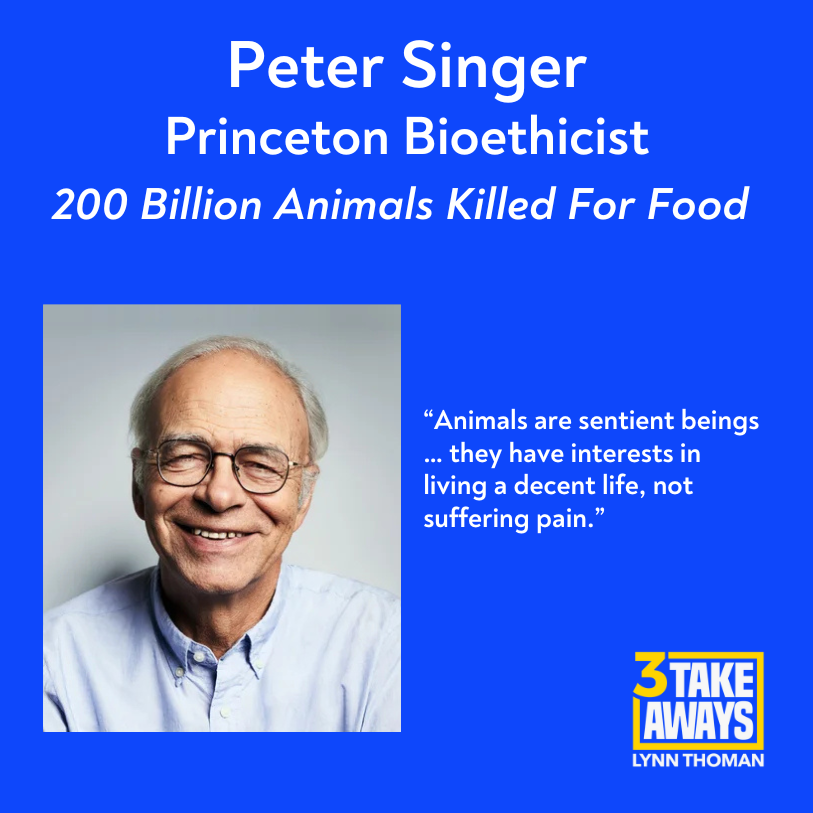
200 Billion Animals Are Killed for Food Each Year
Chew on this: Approximately 200 billion animals are raised for food each year, often in horrific conditions. The contribution of these animals to climate change is greater than the emissions of all the cars being driven around the world. There is a solution. Listen, as Princeton bioethicist Peter Singer explains both the problem and a simple answer.
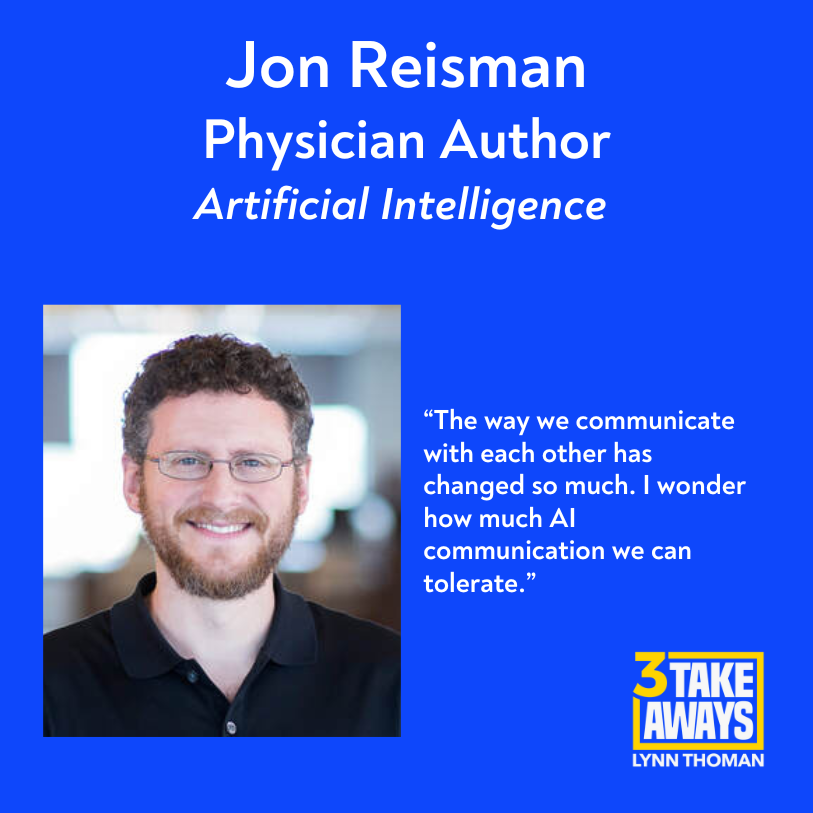
I’m a Doctor. ChatGPT’s Bedside Manner Is Better Than Mine.
For better and for worse, artificially intelligent communication is inexorably making its way into medical care. How will this affect the doctor-patient relationship? Can AI convey human empathy and emotion? What will the impact be on your health? According to Dr. Jon Reisman, there’s no turning back. Listen, and learn what the future will hold.

AI and Healthcare: A Dose of Good News
Sam Hazen has seen the future of healthcare, and it works. The CEO of one of the world’s largest healthcare providers, HCA, is using artificial intelligence and robotics to improve patient health and hospital services, make healthcare more affordable, and more. Don’t miss this dose of good news about healthcare.

Bird Flu is a Real Concern. Learn the Facts with Former National Security Council Director for Medical and Biodefense Preparedness
Pandemics are on the rise. Will bird flu be next? The government says it’s monitoring the situation, but should we worry? According to former National Security Council Director for Medical and Biodefense Preparedness and expert on emerging infectious diseases, Luciana Borio, the answer is yes. Not only because bird flu is dangerous, but because the government may be giving us happy talk. The more you know, the better. So join us.

The One And Only Dr. Atul Gawande In An Eye-Opening, Wide-Ranging Talk About Global Health
Surgeon, professor, public health leader, bestselling author, global healthcare legend. Listen as Dr. Atul Gawande talks about the astonishing success of modern medicine, how countries that spend far less on healthcare than the U.S. achieve similar outcomes, the global effort to increase lifespan, the future of healthcare, and much more.

Top Takeaways of 2023
3 Takeaways brings you conversations with people who are changing the world. The world’s foremost thinkers, business leaders, writers, politicians, scientists and other newsmakers share three key insights to help you understand the world in new ways that can benefit your life and career. In this special year-end episode, we present the most powerful and compelling takeaways of 2023.
Can you guess which takeaway is from each guest before we tell you who it is? The guests include former Director of the CIA, former Vice Chairman of the Joint Chiefs of Staff, CEO of Chevron, former Foreign Minister of Israel and other amazing guests.
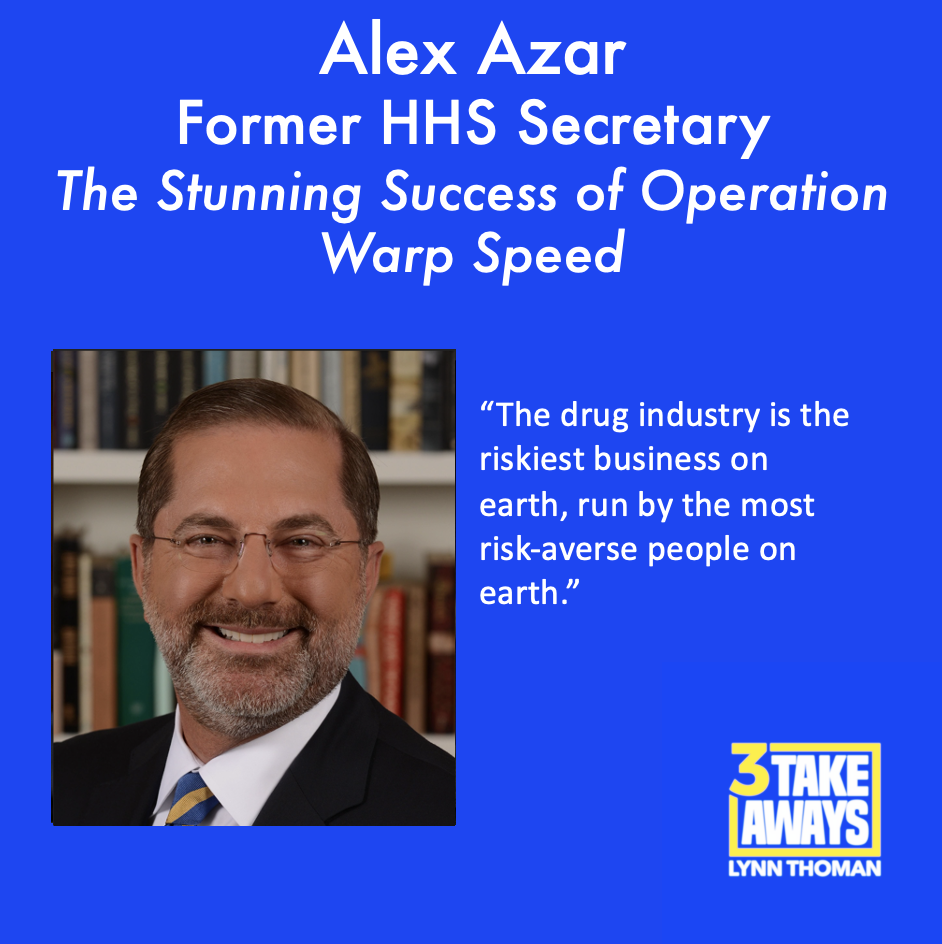
Former Secretary of Health and Human Services Alex Azar Details Previously Unknown Reasons For The Stunning Success of Operation Warp Speed
Operation Warp Speed achieved in 7 months what normally takes 8–12 years. Former Secretary of Health and Human Services, Alex Azar, reveals in fascinating detail how it was done — the key people involved, how it was influenced by the Manhattan Project, the government’s critical, groundbreaking partnership with the drug industry, and more.
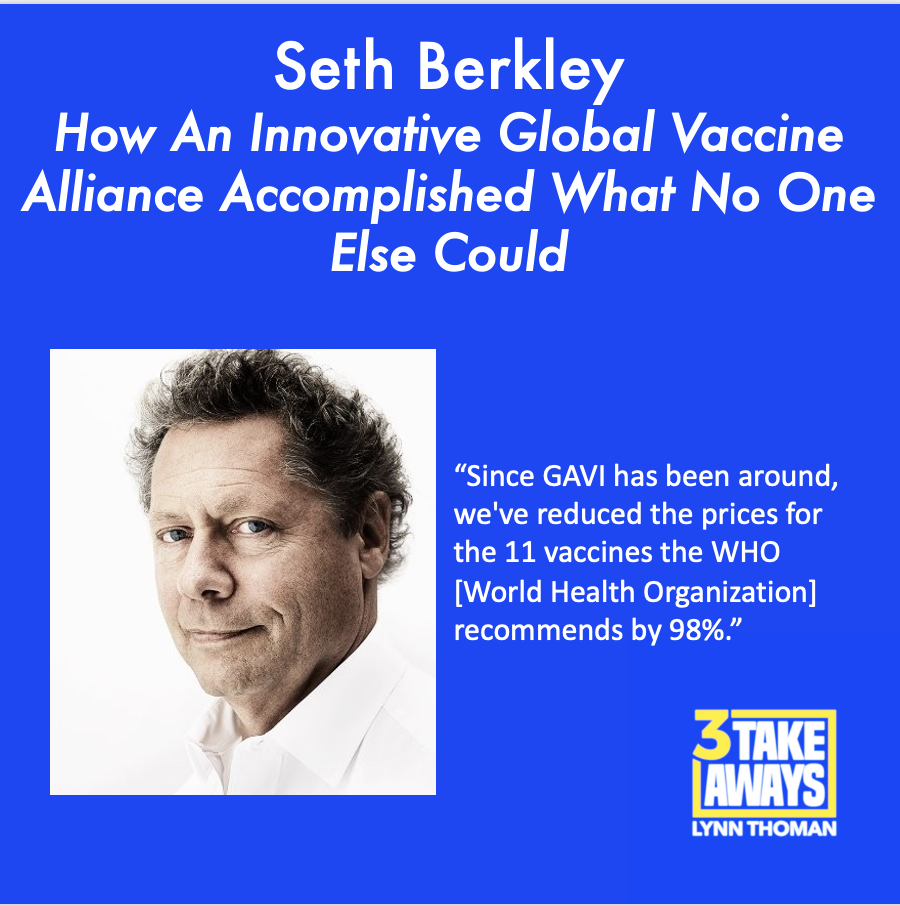
How An Innovative, Global Vaccine Alliance Accomplished What No Other Organization Could
Now for some wonderful news. There’s a global public-private alliance that has done what no other organization could: helped vaccinate almost half the world’s children, about a billion, against deadly and debilitating diseases. Learn about Gavi, the Vaccine Alliance, from its CEO Seth Berkley, and the innovative funding mechanisms that have helped it succeed.
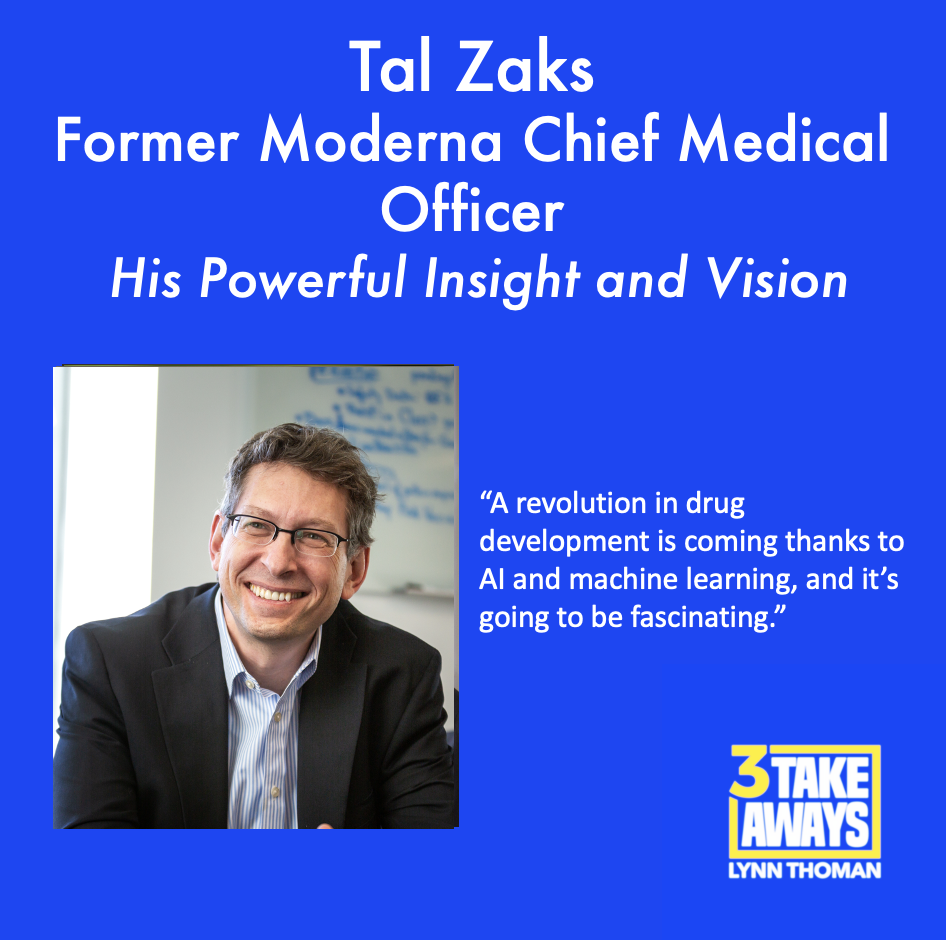
The Man Who Led the Creation of Moderna’s Covid Vaccine Shares His Powerful Insight and Vision: Tal Zaks
As Moderna’s Chief Medical Officer, Tal Zaks spearheaded the creation of the company’s revolutionary Covid vaccine. Here, this visionary scientist talks about the game changing impact AI will have on drug development, emerging treatments for cancer and other diseases, the real safety profile of mRNA vaccines, and more.
“A revolution in drug development is coming thanks to AI and machine learning, and it’s going to be fascinating.”
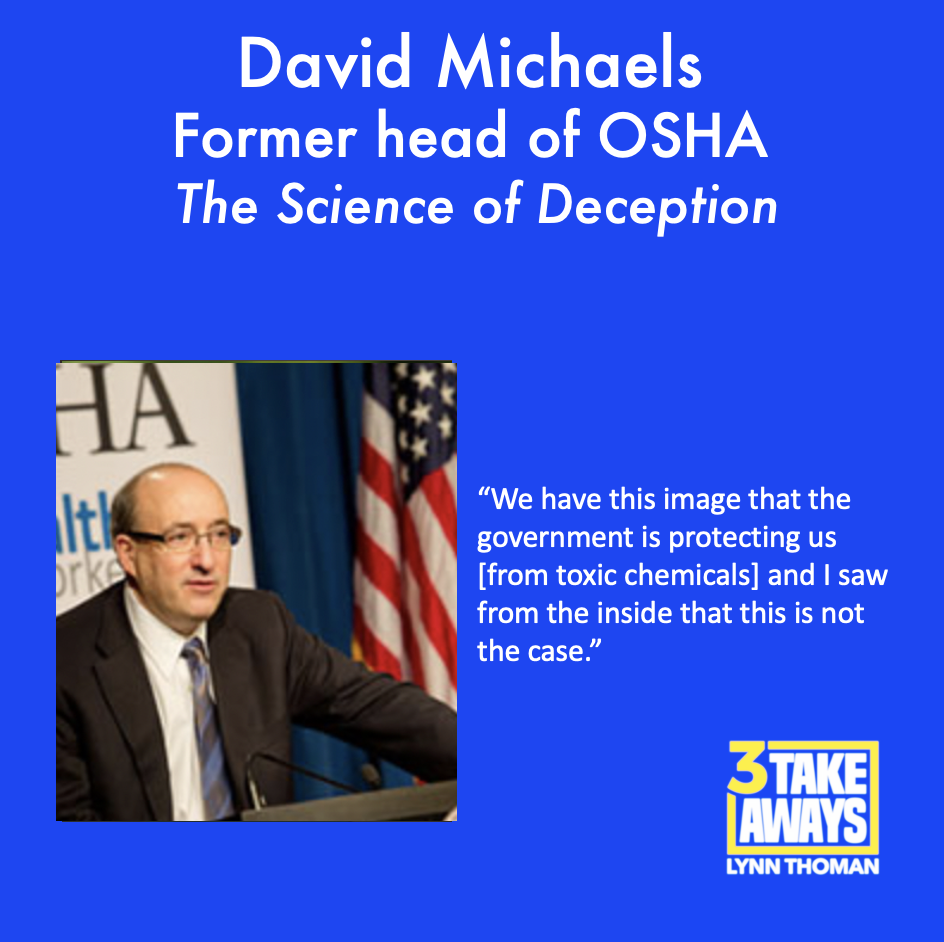
A Former OSHA Head Exposes the Science of Deception That Allows Dangerous Chemicals To Go Unregulated
There is massive, well-funded deception that enables many toxic chemicals and products to go unregulated — says former OSHA head David Michaels. He calls it the science of deception and the manufacture of doubt. Listen, as he explains in shocking detail how corporations pay for corrupt science and disinformation to influence government agencies, and where it’s happening today.
“We have this image that the government is protecting us [from toxic chemicals] and I saw from the inside that this is not the case.”
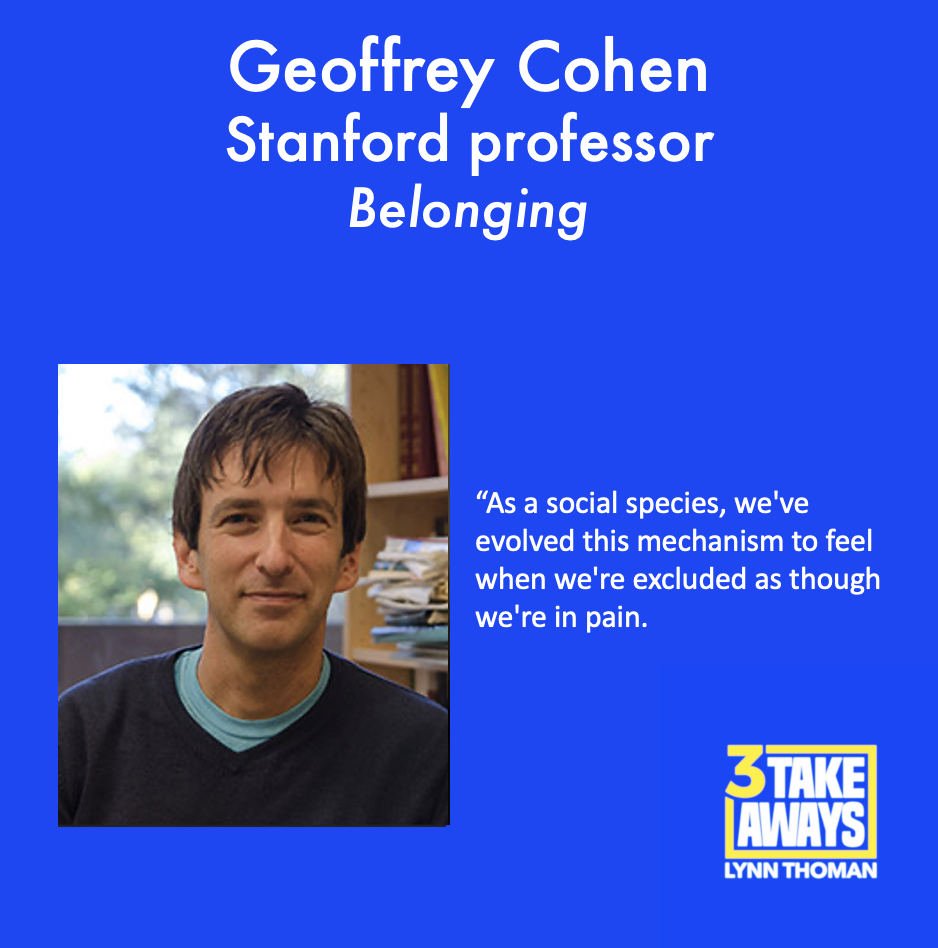
Belonging: How To Combat The Serious Isolation That’s Wreaking Havoc on Our Health and Happiness
We are biologically wired to need connection with others, but live in an age of serious and debilitating isolation. What are the ramifications of this to our health and happiness, and even to our longevity? Stanford’s Geoffrey Cohen brilliantly diagnoses the problem and offers stunningly simple solutions.
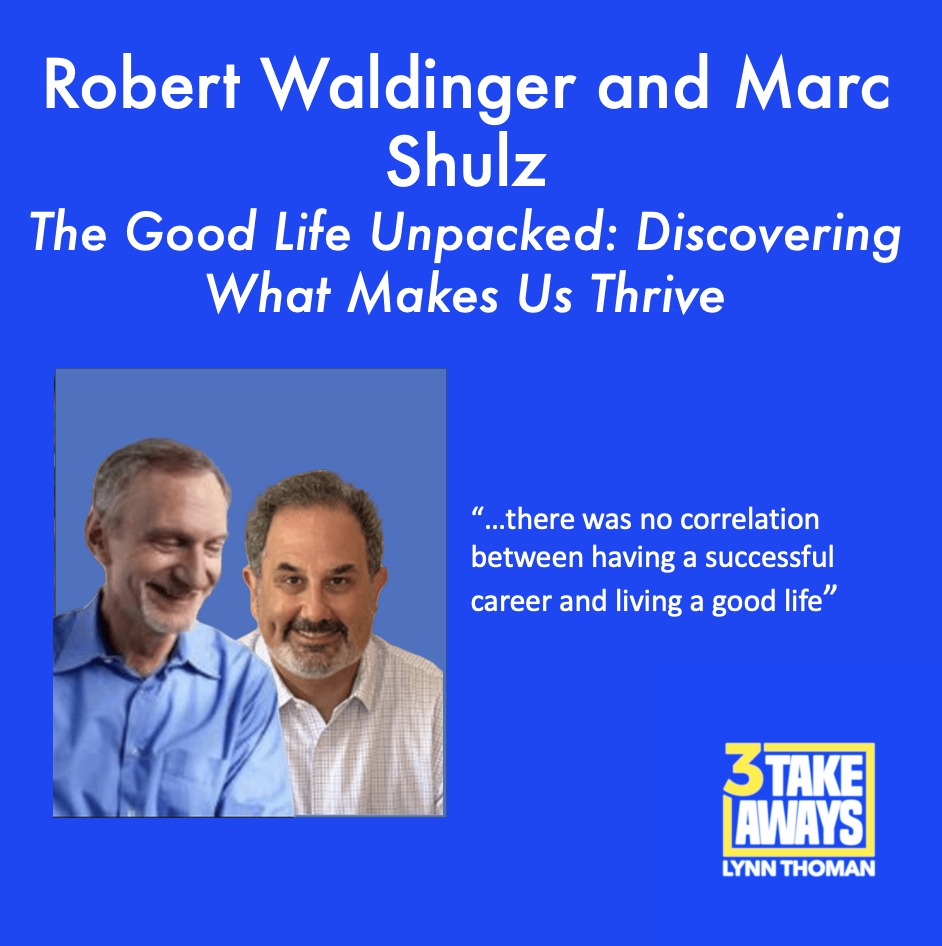
The Good Life Unpacked: Discovering What Makes Us Thrive with the Heads of Harvard's 80-Year Study
Unlock the secrets to a fulfilling life with Robert Waldinger and Marc Shulz, the heads of Harvard’s 80-Year Study of Adult Development, the longest, most in-depth, longitudinal study of human life and thriving ever done. Discover what a good life is, and how we can all have a better one. Even small choices, it turns out, can shape our lives and help us thrive. Learn the simple ingredients that make a good life, the U-shaped curve of happiness and how it's never too late to start. Get ready to be inspired and leave with three actionable takeaways!
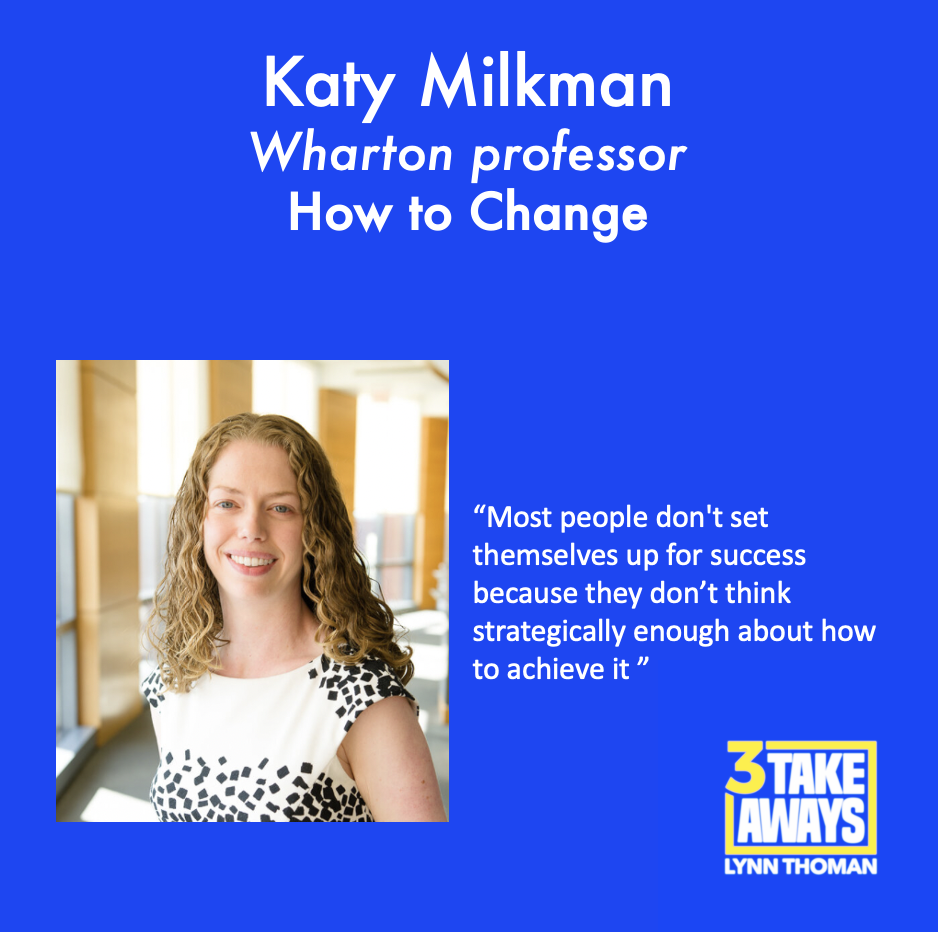
How to Change: An Expert on the Science of Personal Change Reveals Proven, Powerful Strategies
Deep personal change that enables you to achieve your goals is absolutely possible. The key: Identify what’s standing in your way, then employ strategies to overcome it. Here, Katy Milkman, Wharton professor and author of the bestseller How to Change, shares many of these powerful strategies. Here’s one: Make hard things fun.
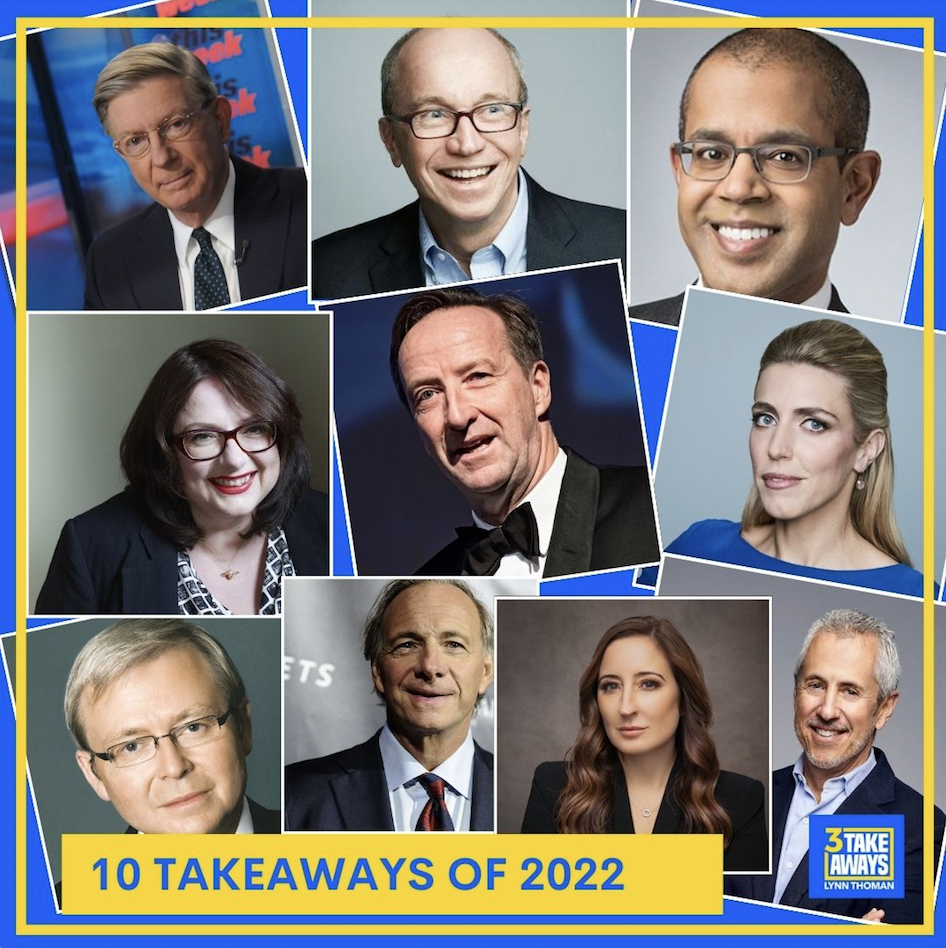
Which are the 10 Most Powerful and Compelling Takeaways of 2022? Listen and Find Out.
3 Takeaways features revealing conversations with the world’s foremost thinkers, business leaders, writers, politicians, scientists and other newsmakers, who each share three takeaways they consider vital. In this special year-end episode, we present the 10 most powerful and compelling takeaways of 2022.
Can you guess which takeaway is from each guest? The guests include:
Former Prime Minster of Australia
Former Chief of MI6
Founder of the world's largest hedge fund
7 other amazing guests
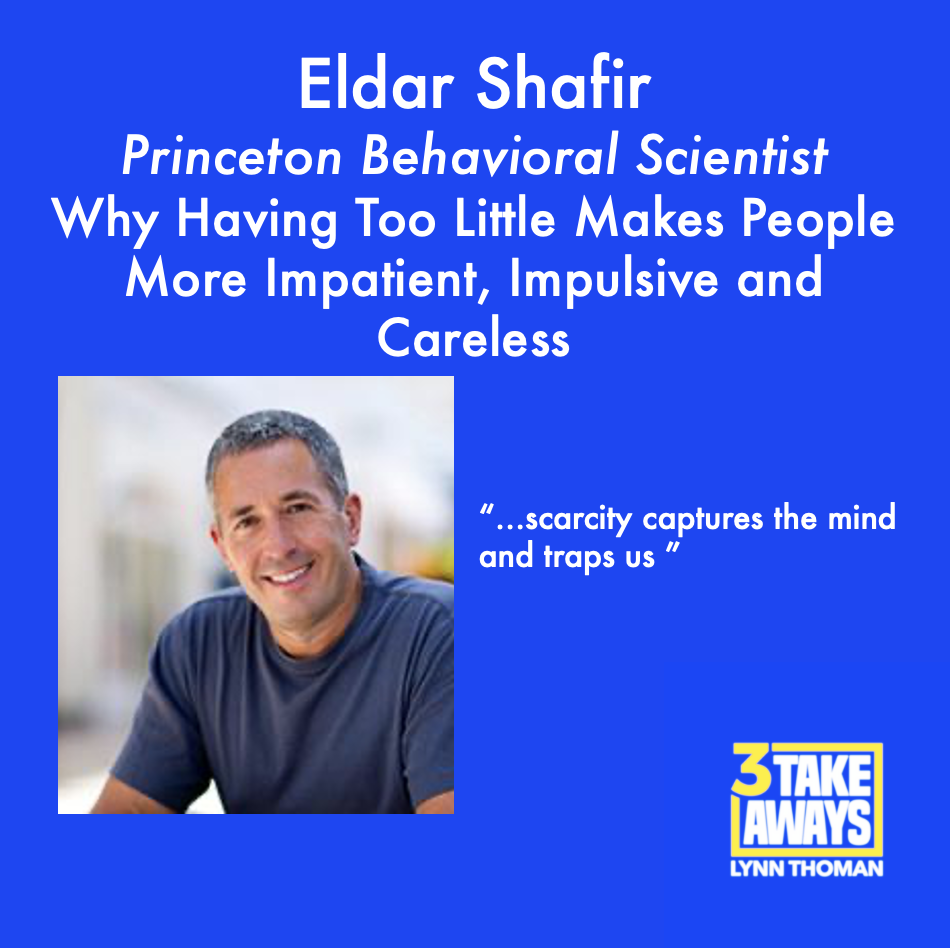
Why Having Too Little Makes People Perform Worse and Become More Impatient, Impulsive and Careless: Princeton Behavioral Scientist Eldar Shafir
Learn how scarcity of anything - money, food or social connections - affects our daily lives and leads us astray. Scarcity reduces both intelligence and control. Having too little preoccupies and taxes the mind, making life much harder. "Even smiling and being pleasant is hard when your mind is taxed. The employee snaps at rude customers ... The parent snaps at the child ... The server rings up the wrong item.”
Find out about the latest cutting edge behavioral science and how we can all manage scarcity for better satisfaction and success with Princeton behavioral scientist Eldar Shafir.
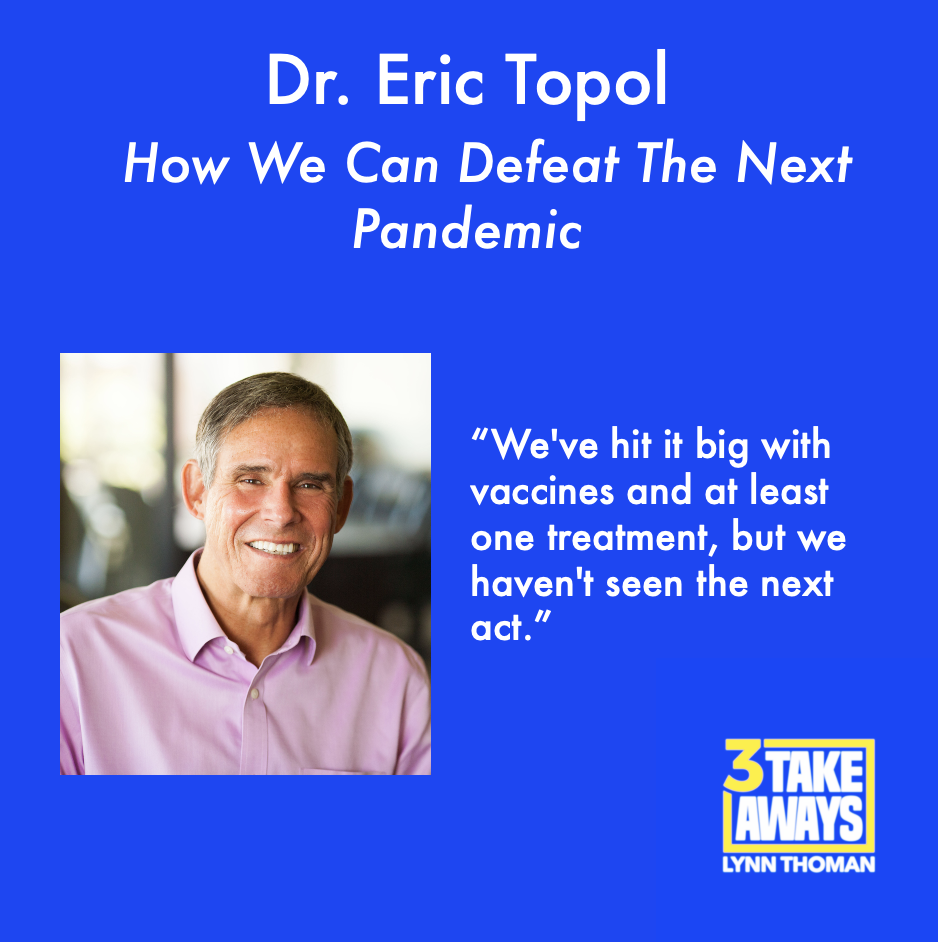
How We Can Defeat The Next Pandemic and The Future of Medicine: Dr. Eric Topol
Dr. Eric Topol explains how we can prepare for the next pandemic, including having stockpiles of variant proof vaccines for the families that are most likely to cause pandemics besides coronavirus and influenza. He also shares recent breakthroughs in medicine which will improve accuracy and diagnosis.
Dr. Topol is the founder of Scripps Research.

Reporting from War Zones with CNN Chief International Correspondent Clarissa Ward: How What's Reported Differs From the Situation On the Ground
This week we talk with Clarissa Ward, CNN’s Chief International Correspondent, who has been reporting from Ukraine, and who has covered hot zones and wars in Lebanon, Iraq, Egypt, Syria and Afghanistan and been based in Baghdad, Beirut, Beijing and Moscow. She shares the remaking of the world from the front lines and how the situation on the ground differs from what’s reported.
She provides a deeply personal and inside scoop on the news. Find out why TV doesn’t provide a full picture of reality and what she’s learned from her extensive time covering conflicts and wars.
She also talks about a reporter’s responsibility in being a vessel, the mental health toll of reporting from war zones and the surprising advantages to being a woman reporting from the Middle East.
Clarissa is known for her courage, compassion and riveting reporting. She speaks seven languages and has received multiple awards, including Peabody, Murrow and nine Emmy awards.
